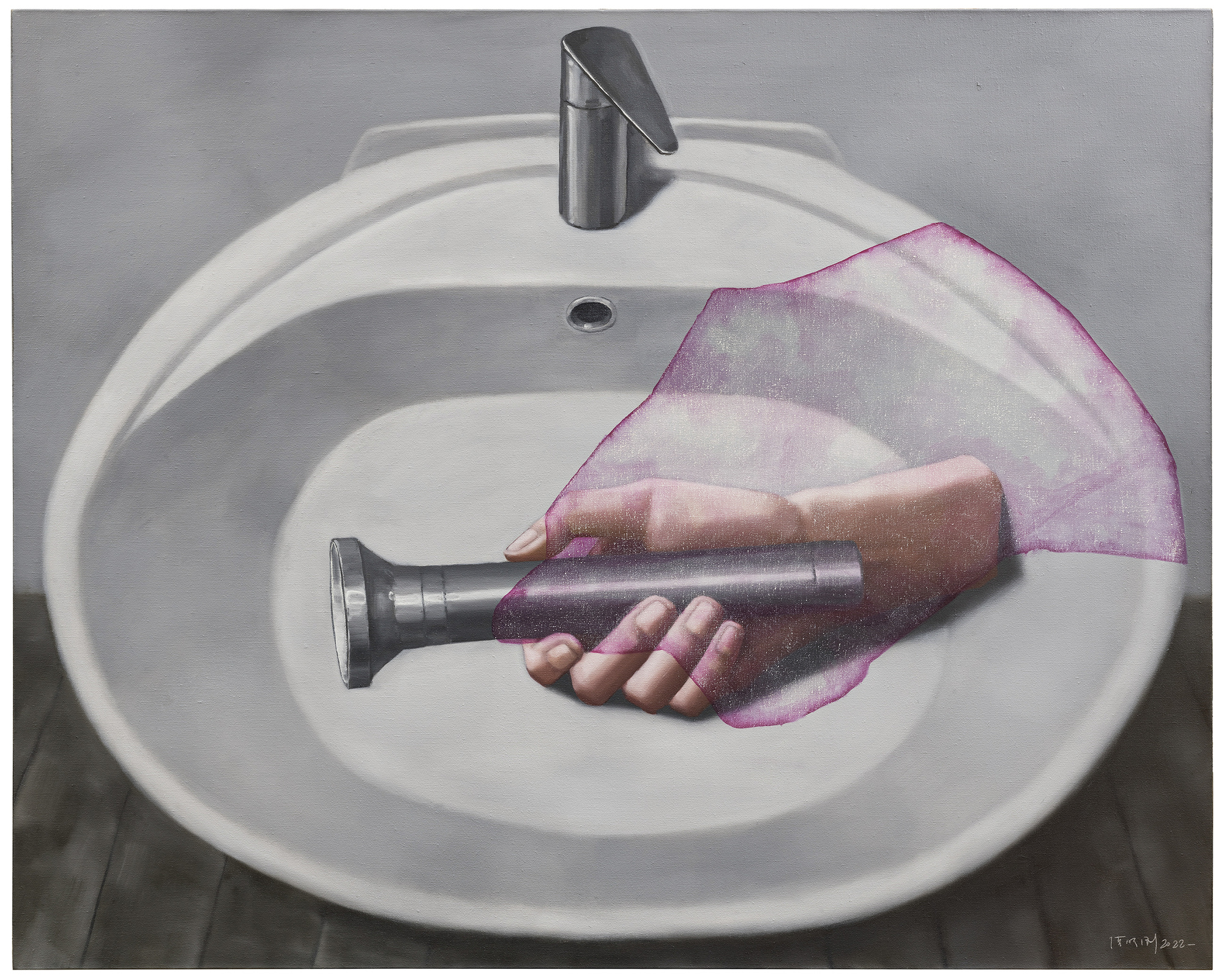Shows
Zhang Xiaogang Channels the Collective Fear of Becoming “Lost”


Zhang Xiaogang: “Lost失重”
Pace Gallery, Hong Kong
Mar 21–May 4
The Chinese word 失重 (“lost”) translates to the sensation of a sudden drop on a roller coaster and carries the connotation of feeling directionless in life. In that way 失重 can be interpreted as a psychological state, perhaps one experienced by the artist during the Covid-19 pandemic or by others during moments in history when society is in disarray and laws are rendered meaningless. In these moments, people feel “lost” as their situations become subject to irrationality and uncertainty, or are contingent on the whims of a select few.
Using this phrase for an exhibition title, Zhang Xiaogang presented 11 works created in the past three years at Pace Gallery in Hong Kong. Celebrated for his surrealist style of portrait paintings Zhang employs one of his well-recognized visual signatures—spots of light—to examine everyday objects, such as water sinks, flashlights, and books in three works in the Light series (2022) displayed in the first room. Inspired by his own 40 days of quarantine during the pandemic, the artist makes these daily objects the central focus of the canvases. Light No. 10 (2022), for instance, casts light on a sink with a severed hand holding a flashlight inside the basin. The grayscale tones evoke the feeling of staring idly at objects in a hotel room during a seemingly never-ending confinement. While the choice of these objects is personal, his artistic expression taps into a collective memory and resonates with anyone restricted at home or forced into isolation during the pandemic.
Although the works in “Lost” were all created over the past three years, they bear a retrospective quality with nods to the 1960s. The most notable examples are the Three Major Pics series (2020), which features family appliances. In Three Major Pics – Refrigerator (2020), a double-door green icebox is surrounded by collaged paper shreds, implying Chinese people’s aspirations for a higher living standards and greater authority under the planned economy system. Also depicting a washing machine and a colorcast television, Three Major Pics represent symbolic objects from the 1960s, a period marked by the trauma and destruction of the Cultural Revolution (1966–76). More than simply looking back, they can also be seen to serve as a kind of “contemporary fable,” echoing that turbulent decade when many were silenced and robbed of their voices. As April arrived, Zhang’s works further reminded us of the traumatic memories from Shanghai last year when people’s movements were forbidden, expressions were censored, and rights were violated in a draconian citywide lockdown.
The hand and book is a recurring motif as seen in the Light series and the Amnesia and Memory series (2000–08). Set against a dark-green background, Light No. 5 (2022) depicts a hand holding a book, partially obscured by a shimmering golden light spot. Despite the philosophical power that both books and hands possess in terms of shaping one’s fate, in a state of social disorder, individuals are unable to control their own destinies—whether through their hands or the knowledge they acquire through books.
While Zhang has been criticized for repeated references to the heavily censored eras of the past and traumas to create controversy and boost sales, the ghosts of history still haunt us. Chinese author Wang Xiaobo (1952–1997), for instance, was devoted to drawing lessons from the Cultural Revolution, cautioning against the dangers of history repeating itself. In his widely read essay The Silent Majority (1997), he proposes that too many people willingly or unknowingly surrendered their right to speak, allowing a select few to seize power. As a contemporary of Wang, Zhang Xiaogang shares in the historical trauma as well as the new chapter of human tragedy experienced during Covid-19 when ordinary lives were sacrificed to uphold anti-pandemic measures. We can understand Zhang’s practice as one of reminding people of historical traumas and expanding the power of the voice so as not to fall in with those who don’t speak.
Denise Wang is an editorial intern at ArtAsiaPacific.







